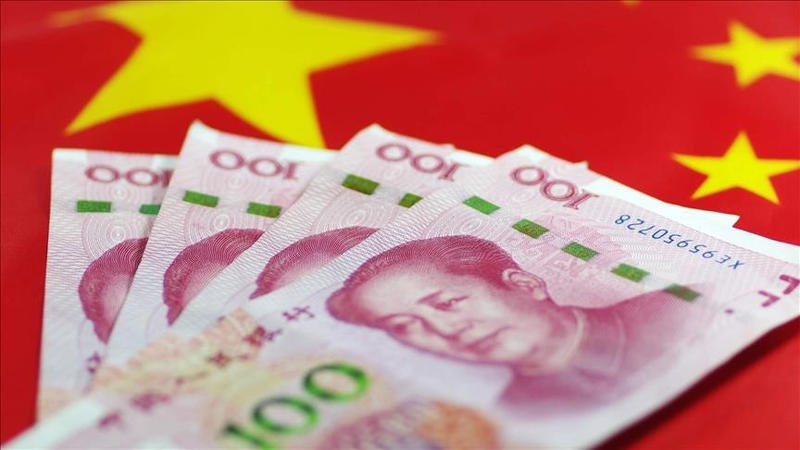Published 10:28 IST, September 3rd 2024
China ETFs boom on state buying, active fund underperformance
China's blue-chip CSI300 is down nearly 40% since end-2020, but the country's ETF assets have nearly tripled during the period.

China's exchange-traded funds are booming as state funds pile in and managers are rushing out new products to meet demand from investors disillusioned by active money managers and a flagging stock market.
The country's exchange-traded fund (ETF) assets have ballooned nearly 40% so far this year to 2.8 trillion yuan ($394 billion) and are on track for a record annual inflow, exchange data shows, despite the stock benchmark falling 4%.
China's markets have underperformed global equities for more than three years as a combination of pandemic lockdowns, an underwhelming recovery and rising geopolitical tensions have shaken faith in the world's second-biggest economy. Ironically, that has seemed to fuel an ETF boom that is running harder than a global drift towards passive investing.
Sovereign fund Central Huijin Investment has pumped roughly 400 billion yuan into four ETFs that track the blue-chip index CSI300 since October, fund consultancy Z-Ben Advisors said, an estimate backed by the latest ETF disclosures.
The rest has come from private investors, encouraged by regulators and aggressive broker promotions in a trend that has the potential to reshape China's investment landscape and underpin the market's recovery by re-directing money.
"ETFs are increasingly favoured by investors in China as a transparent, easy-to-trade instrument, amid growing recognition of index investing," said Wang Bo, ETF strategist of China Asset Management (ChinaAMC), whose two blue-chip ETFs reported heavy inflows from Huijin in the first half.
"The boom is also being fuelled by support from regulators who have streamlined the ETF approval process and endorsed index products able to fund Beijing's strategic goals such as tech independency."
The trend is spurring a race to sign up investors, especially as they quit underperforming active funds.
The CSI Active Equity Fund Index has tumbled 12% so far this year, far more than the 3% loss in the CSI300 Index. Over the past three years, China's active funds underperformed the benchmark by roughly 12 percentage points on average.
"Star fund managers have lost their halo," said Ivan Shi, head of research at Z-Ben Advisors.
EARLY DAYS
China's blue-chip CSI300 is down nearly 40% since end-2020, but the country's ETF assets have nearly tripled during the period.
"It became increasingly difficult for actively managed funds to outperform," said Wanda Wang, an analyst at Morningstar.
"More and more individual investors participate in ETF investment, especially when the China A-shares market has been very turbulent."
ChinaAMC's Wang concurred that it's getting harder to outperform the benchmark as the market matures.
"Investors chasing star fund managers would be easily burnt in a market downturn."
To be sure, the interest in index investing aligns with a global shift, which witnessed a 26% jump in ETF assets last year to $11.4 trillion, according to consultancy ETFGI.
But as China's ETF scene is such a small slice of that total, the potential for growth is large and asset management firms are turning to the market for growth.
ChinaAMC, the country's biggest ETF manager with over 500 billion yuan of ETF assets, will roll out more innovative, and refined products in areas including commodities, cross-border, and so-called "smart beta" ETFs, said strategist Wang.
Major ETF players in China also include E Fund Management Co and Huatai-PineBridge Investments and it is drawing interest from firms whose traditional focus is active management.
JPMorgan Asset Management's China ETF business has more than tripled so far this year, thanks to a relatively low base, the successful launch of an ETF tracking the CSI A50 index , and inflows into an ETF that invests in low-volatility, high-dividend stocks in Hong Kong.
The U.S. asset manager, which currently runs six China-listed ETFs, aims to expand offerings, including broad-based ETFs, active ETFs and cross-border ETFs, China CEO Desiree Wang said.
"China's ETF market is still in a relatively early phase of development," Wang said.
“Our ETF strategy is to provide key exposures as needed by our clients and asset allocators, and in the long run to deliver our active management capabilities within an ETF wrapper.”
Updated 10:28 IST, September 3rd 2024




